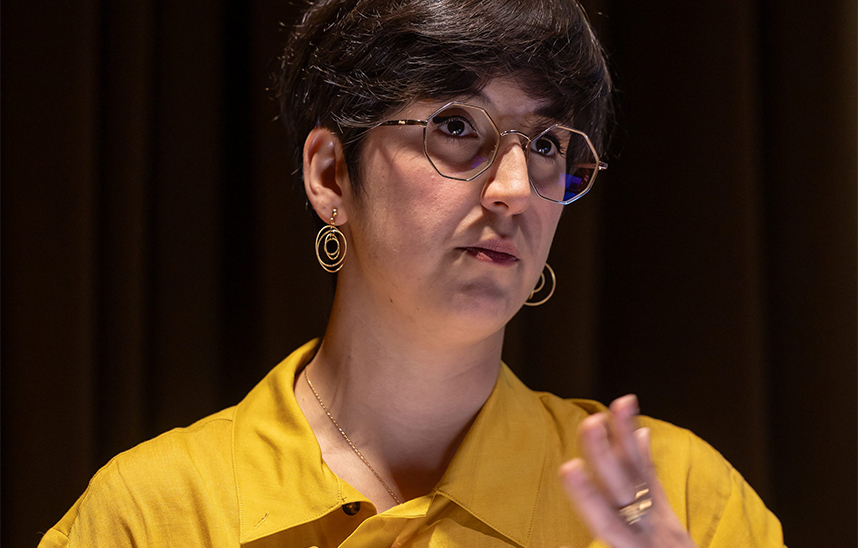Second thesis of the Master's Degree in Curatorial Studies at the MUN

PhotoManuelMuseo Universidad de Navarra Reina during her defense.
Teresa Reina (MCS 19) has defended her doctoral thesis, the second by a graduate of the Master in Curatorial Studies, under the direction of Carlos Chocarro(School of Architecture of the University of Navarra) and Nieves Acedo (director of the master's program).
"Contemporary art exhibitions as an object of art-historical study in the Spanish context between 1972 and 1983. Three case studies" addresses the convergence of artistic disciplines and contemplates curatorship as a discipline linked to the historical study of art.
What do you think is the importance of the theme, why did you choose it?
It seems to me that exhibitions are an important means for the transmission of art, perhaps the best known or the most used. Since the opening of the great royal collections in Europe, in the late eighteenth and early nineteenth centuries, the works were shown to the public through the exhibition format. Of course, books and the Internet have increased this accessibility to the maximum, but exhibitions are still part of our cultural consumption and tourism habits, etc. Thus, we can study the exhibitions of the past to learn more about the context in which they were developed. The way art is presented can give us clues about fashions, social concerns...
Why did you decide to pursue a doctorate?
You know what they say about 'curiosity killed the cat'? Apart from being 'catnip', it can get you into other trouble, like doing your thesis. I think the curiosity was already there when I started my degree, and it grew as I got to know the work of my professors. I was always attracted to that possibility of discovering new voices, new stories.... Maybe because I am both, a historian and a journalist.
What was your experience with the master's program?
I think the word that best defines it is 'intensity'. It was a brutal learning process in a few months. At the time I may not have been able to assimilate it all at once, but over time I have become aware of the impact it has left on my education. I am more than grateful to the teachers who accompanied us during those months; I would repeat without hesitation!
What do you think the completion of a doctoral thesis brings to a professional in the art world?
The contribution is bidirectional, I think. The thesis provides you with tools for research, critical thinking and maturity that are of great value in the art world. And, on the other hand, being able to continue in some way the academic path, teaching, researching, with that foot in the professional world, means that the world of thought does not lose contact with the tangible world. Experience tells me that students benefit from this interaction in a more complete learning process. Institutions also benefit from profiles with the in-depth training provided by the thesis. In an already hyper-globalized, hyper-connected environment, these tools of research, critical thinking and maturity are more important than ever.